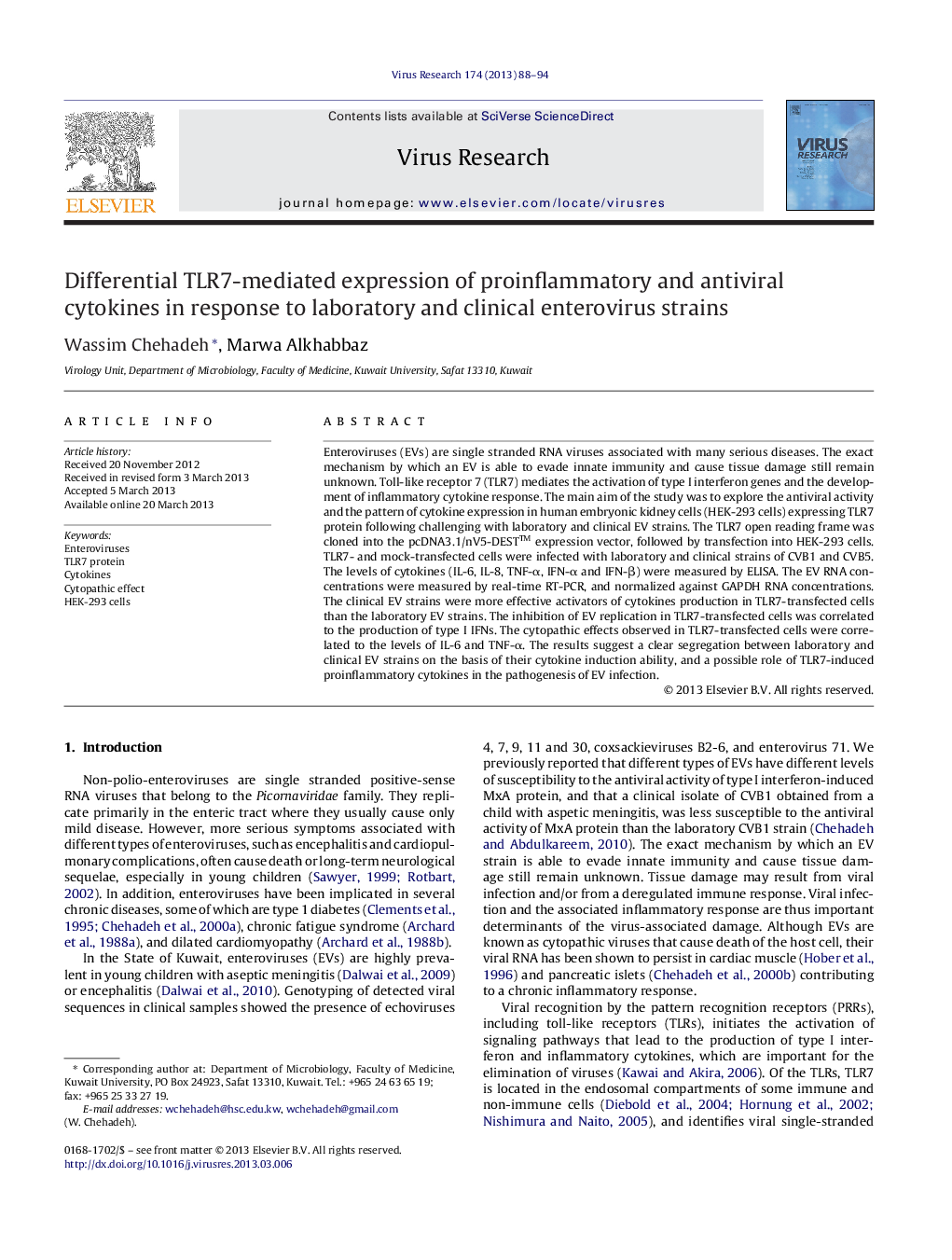| Article ID | Journal | Published Year | Pages | File Type |
|---|---|---|---|---|
| 3428594 | Virus Research | 2013 | 7 Pages |
•Enterovirus-induced TLR7 activation elicits antiviral and proinflammatory responses.•Clinical enterovirus strains have high potential to elicit cytokine response.•Proinflammatory cytokines may enhance enterovirus-induced cytopathic effect.
Enteroviruses (EVs) are single stranded RNA viruses associated with many serious diseases. The exact mechanism by which an EV is able to evade innate immunity and cause tissue damage still remain unknown. Toll-like receptor 7 (TLR7) mediates the activation of type I interferon genes and the development of inflammatory cytokine response. The main aim of the study was to explore the antiviral activity and the pattern of cytokine expression in human embryonic kidney cells (HEK-293 cells) expressing TLR7 protein following challenging with laboratory and clinical EV strains. The TLR7 open reading frame was cloned into the pcDNA3.1/nV5-DEST™ expression vector, followed by transfection into HEK-293 cells. TLR7- and mock-transfected cells were infected with laboratory and clinical strains of CVB1 and CVB5. The levels of cytokines (IL-6, IL-8, TNF-α, IFN-α and IFN-β) were measured by ELISA. The EV RNA concentrations were measured by real-time RT-PCR, and normalized against GAPDH RNA concentrations. The clinical EV strains were more effective activators of cytokines production in TLR7-transfected cells than the laboratory EV strains. The inhibition of EV replication in TLR7-transfected cells was correlated to the production of type I IFNs. The cytopathic effects observed in TLR7-transfected cells were correlated to the levels of IL-6 and TNF-α. The results suggest a clear segregation between laboratory and clinical EV strains on the basis of their cytokine induction ability, and a possible role of TLR7-induced proinflammatory cytokines in the pathogenesis of EV infection.
